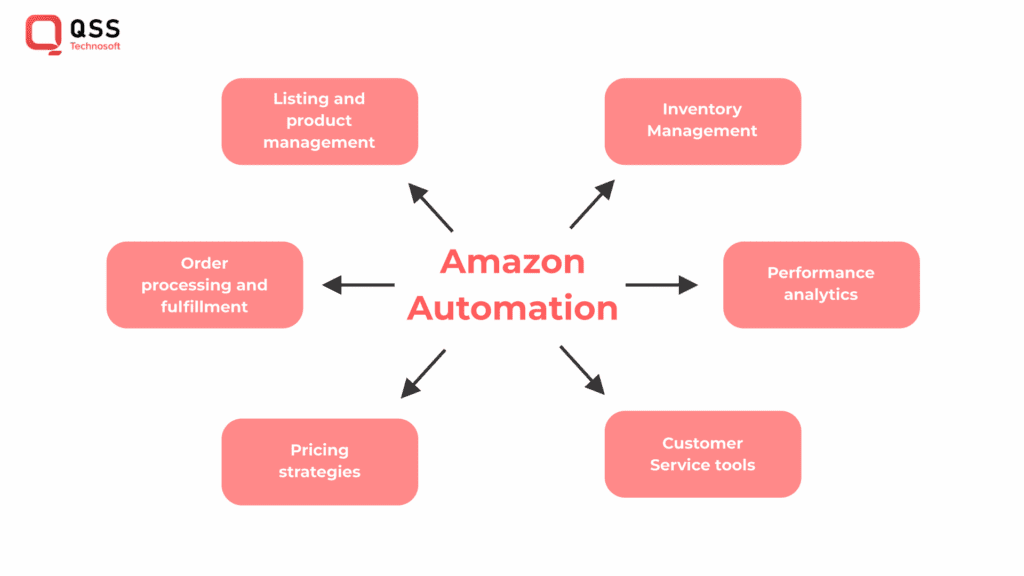Are you tired of playing catch-up in the growing retail industry? As competition intensifies and customer expectations continue to evolve, delivering exceptional experiences is no longer an option – it’s a necessity. So, how can retailers keep up with the demands of today’s customers and revolutionize their sales processes? The answer lies in Salesforce, the leading CRM platform that empowers retailers to automate their sales processes and take customer experiences to new heights.
Let’s talk numbers briefly. Did you know that businesses that implement Salesforce report an average increase in customer satisfaction by a whopping 29%? That’s right – by using the power of Salesforce, retailers can surpass their competitors and wow their customers like never before.
Salesforce provides incredible scalability and flexibility to accommodate retailers’ growing needs. With its cloud-based infrastructure, you can add new users, integrate with other systems, and adapt to changing market dynamics seamlessly. So, fellow retailers, isn’t it time to take the leap and propel your business forward with Salesforce?
Make sure to READ this blog till the end because today we are going to provide you a comprehensive review of salesforce for the retail industry.
The Importance of Automating Sales Processes
Automation has become a game-changer for retailers. By automating their sales processes, retailers can streamline their operations, reduce manual errors, and increase productivity. This enables them to focus more on providing personalized customer experiences and fostering long-term customer relationships. The retail industry has unique challenges that can be effectively addressed through Salesforce automation.
Read Our Old Blog :Debugging and Troubleshooting in Salesforce
One of the key challenges in retail is managing multiple sales channels, such as:
- E-commerce websites
- mobile apps
- Physical stores,
Salesforce provides an omnichannel solution that integrates all these channels into a single platform. This allows retailers to have a unified view of their customers and their purchase history across different channels. With this information at hand, retailers can deliver consistent experiences, recommend personalized products, and provide exceptional customer service.
An example of a company that has effectively automated its sales processes is Amazon.
Amazon is known for its seamless shopping experience and efficient order fulfilment. They have automated their sales processes through their comprehensive platform, which integrates various channels, including their website, mobile app, and physical stores (such as Amazon Go stores).

Through automation, Amazon can streamline their operations and ensure accurate order processing. Their automated inventory management system keeps track of product availability in real time, preventing overselling or out-of-stock situations. Additionally, their automated fulfilment centres enable quick and efficient order fulfilment, ensuring timely delivery to customers.
Salesforce Features for Retail Sales Automation
Salesforce offers several features that are specifically tailored to the needs of the retail industry. Let’s explore some of the key features and how they can help retailers automate their sales processes and enhance customer experiences:
1. Sales Cloud
Sales Cloud is the core CRM functionality of Salesforce and is designed to help retailers manage their sales processes efficiently. It enables retailers to track leads, opportunities, and customer interactions, ensuring that sales representatives have all the necessary information at their fingertips.
By automating tasks such as lead capturing, lead nurturing, and opportunity management, Sales Cloud helps retailers streamline their sales processes and close deals more effectively.
2. Marketing Cloud
Effective marketing is crucial for driving sales and fostering customer loyalty. Salesforce’s Marketing Cloud enables retailers to create personalized marketing campaigns across multiple channels, including email, SMS, social media, and mobile apps.
By automating marketing processes such as segmentation, content creation, and campaign management, retailers can deliver targeted messages to customers at the right time, resulting in higher customer engagement and conversion rates.
3. Service Cloud
Delivering exceptional customer service is a key differentiator for retailers. Salesforce’s Service Cloud provides a comprehensive solution for managing customer inquiries, complaints, and support requests.
By automating case assignment, routing, and escalation, retailers can ensure that customer issues are resolved promptly and efficiently. Service Cloud also enables retailers to offer self-service options such as knowledge bases and customer communities, empowering customers to find answers to their questions independently.
4. Commerce Cloud
E-commerce has become an integral part of retail. Salesforce’s Commerce Cloud helps retailers build and manage their e-commerce websites with ease. It provides features such as product catalogue management, personalized product recommendations, and integrated payment gateways.
By understanding key aspects of the e-commerce process, retailers can provide a seamless online shopping experience that drives conversions and increases customer satisfaction.
Benefits of Salesforce Automation for Retailers
The automation of sales processes through Salesforce offers several benefits for retailers:
Improved Efficiency and Productivity
By automating manual tasks, retailers can significantly improve the productivity of their sales teams. With streamlined processes, sales representatives can focus more on customer interactions and building relationships, leading to increased sales and customer satisfaction.
The clothing retailer Bonobos implemented Salesforce automation to improve efficiency and productivity in their order fulfilment processes. which led to a 30% reduction in the time it takes to process orders. This allowed the sales team to focus on selling and customer service.
Enhanced Customer Experiences
With a unified view of customer data across channels and automated marketing processes, retailers can provide personalized recommendations, targeted offers, and tailored promotions. This creates delightful experiences for customers, leading to increased loyalty and repeat business.
The beauty retailer Sephora utilizes Salesforce automation to deliver personalized experiences to their customers. By having a unified view of customer data, allowed them to optimize their inventory management and reduce waste, resulting in a 10% increase in profitability.
Data-Driven Decision Making
Salesforce provides retailers with valuable insights into customer behaviour, sales performance, and market trends through its robust reporting and analytics capabilities. By using these insights, retailers can make data-driven decisions to optimize their sales strategies and drive growth.
The home improvement retailer Home Depot use Salesforce’s robust reporting and analytics capabilities to make data-driven decisions. By analyzing customer behaviour and market trends, Home Depot optimizes its sales strategies and drives growth.
Scalability and Flexibility
As retailers grow and expand, Salesforce offers the scalability and flexibility they need. With its cloud-based infrastructure, retailers can easily add new users, integrate with other business systems, and adapt to changing market dynamics.
The grocery retailer Trader Joe’s uses Salesforce to manage customer loyalty programs. Through automation, they reward loyal customers and track engagement, thereby strengthening customer loyalty and encouraging repeat purchases.
Cost Optimization
By automating sales processes, retailers can reduce operational costs associated with manual tasks, such as data entry and reporting. Additionally, Salesforce’s pay-as-you-go pricing model ensures that retailers only pay for the services they use, making it a cost-effective solution for businesses of all sizes.
A speciality retailer used Salesforce to automate its promotional campaigns, which eliminated the need for manual data entry and reduced marketing costs by 25%. This allowed the retailer to reinvest those savings into product development and customer service.
Real-world examples of retail businesses that have successfully implemented Salesforce for sales process automation.
Salesforce has proven to be an invaluable tool for optimizing sales operations, improving customer service, and driving revenue growth. Let’s explore real-world examples of popular retail businesses that have successfully implemented Salesforce for sales process automation.
- Nike:
As a global leader in athletic footwear and apparel, Nike implemented Salesforce to enhance its sales process automation. Salesforce allows Nike to centralize customer data, including past purchases and preferences, enabling their sales team to provide personalized recommendations and tailored experiences. Nike also utilized Salesforce’s artificial intelligence (AI) capabilities to identify customer trends and implement targeted marketing campaigns, boosting sales and customer loyalty.
- Sephora:
Sephora, a multinational beauty retailer, adopted Salesforce to transform its sales process. By leveraging Salesforce, Sephora integrated customer data from various channels into a single platform, enabling their sales team to deliver personalized recommendations based on individual preferences and purchase history. Salesforce also facilitated smoother inventory management, ensuring product availability across diverse sales channels and optimizing customer satisfaction.
Read Our Old Blog : Safeguard Your Salesforce Data: Ultimate Tips for Encryption and Security
- Walmart:
The retail giant Walmart implemented Salesforce to automate its complex sales process. Salesforce enabled Walmart to streamline customer data, integrate with their existing systems, and improve sales forecasting. With access to real-time customer insights, sales representatives at Walmart can efficiently cross-sell and upsell products, resulting in increased sales revenue and overall customer satisfaction.
- Nordstrom:
Nordstrom, a high-end fashion retailer, turned to Salesforce for sales process automation to enhance its customer experience. By implementing Salesforce, Nordstrom unified customer data from both online and in-store interactions, creating a complete view of each customer. This comprehensive customer view allowed Nordstrom’s sales representatives to provide personalized recommendations, resulting in higher conversion rates and repeat business.
Conclusion
In the competitive retail industry, automation is essential for driving sales and delivering exceptional customer experiences. Salesforce provides a comprehensive solution that enables retailers to automate their sales processes and use customer data effectively. By using features like Sales Cloud, Marketing Cloud, Service Cloud, and Commerce Cloud, retailers can streamline their operations, enhance customer experiences, and stay ahead of the competition. Salesforce is an ideal choice for retailers because it is scalable, flexible, and cost-efficient.
Are you looking for a partner to help you achieve your retail automation goals? Look no further than QSS Technosoft! Our team of experts is dedicated to unlocking the full potential of Salesforce and customizing the platform to meet your unique business needs. Contact us today to start your journey toward automation and elevated customer experiences.
Contact QSS Technosoft today to learn more about how we can help you harness the power of Salesforce and transform your retail operations! Stand out from your competition, enhance customer satisfaction, and fuel your growth with Salesforce at your side.
The question is, are you ready to adopt the future of retail?
We are proud to mention that our work has been recognized by leading B2B reviews and research platforms like GoodFirms, Clutch, MirrorView, and many more.















